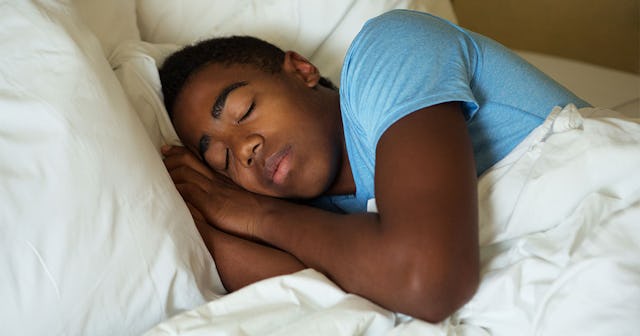New Study Shows That Early School Start Times Are Bad For Teens

Do schools really need to start before 8:30 a.m.? According to a recent study, no — especially not high schools
Teens hate waking up early. And dragging them out the door to get to school at the crack of dawn can sometimes feel a near-impossible task. So, it should come as no surprise that starting school at 8:30 a.m. or later is not only the best way to get them to school on time, but more importantly, several studies have also found that later school start times are actually great for students’ physical and mental health. And now, a new study is further supporting that theory.
Published on Thursday in Sleep journal, the study’s researchers surveyed around 28,000 students at a diverse Colorado school district that pushed back its school start times for its students. The purpose of pushing back the start time was to give the students, especially pre-teens and teens, the opportunity to get more rest — and after two years of doing such, they achieved just that.
“The percent of [elementary school] students reporting sufficient sleep duration, poor sleep quality, or daytime sleepiness did not change, but the percent of [middle school] and [high school] students reporting sufficient sleep duration significantly increased and clinically significant daytime sleepiness decreased.”
More specifically, the study found that moving school start times to later in the morning resulted in increased sleep times of around 45 minutes for students.
The elementary school students started school an hour earlier over the course of the study, allowing older students to be picked up later, says Lisa Meltzer, a pediatric psychologist at National Jewish Health in Colorado, per CNN. As for the middle schools, they delayed their start times by 40 to 60 minutes, and high schools delayed theirs by 70 minutes — thus, starting school at or after 8:30 a.m.
“Delaying middle and high school start times is a critical health policy that can quickly and effectively reduce adolescent sleep deprivation with minimal impact on younger students,” Meltzer says.
The middle school students went to bed about nine minutes later than usual and slept in an additional 37 minutes. In turn giving them an average of 29 minutes of extra sleep. As for high school students, they went to bed an average of 14 minutes later, slept for an additional hour, and, in turn, allowing them to sleep 46 minutes more on average and about four hours more per week.
Overall, Brant Hasler, associate professor of psychiatry at the University of Pittsburgh, tells CNN that this actually better aligns with teens’ internal biological clock. And when student’s don’t get enough sleep, it can negatively affect their memory learning ability, and mental and physical health.
The CDC is — and has been — on board with pushing school start times, too, stating on their website that “schools start too early.”
Currently, less than 21 percent of middle schools and less than 18 percent of high schools in the U.S. start at 8:30 a.m. or later.
“Not getting enough sleep is common among high school students and is associated with several health risks including being overweight, drinking alcohol, smoking tobacco, and using drugs, as well as poor academic performance,” the CDC says.